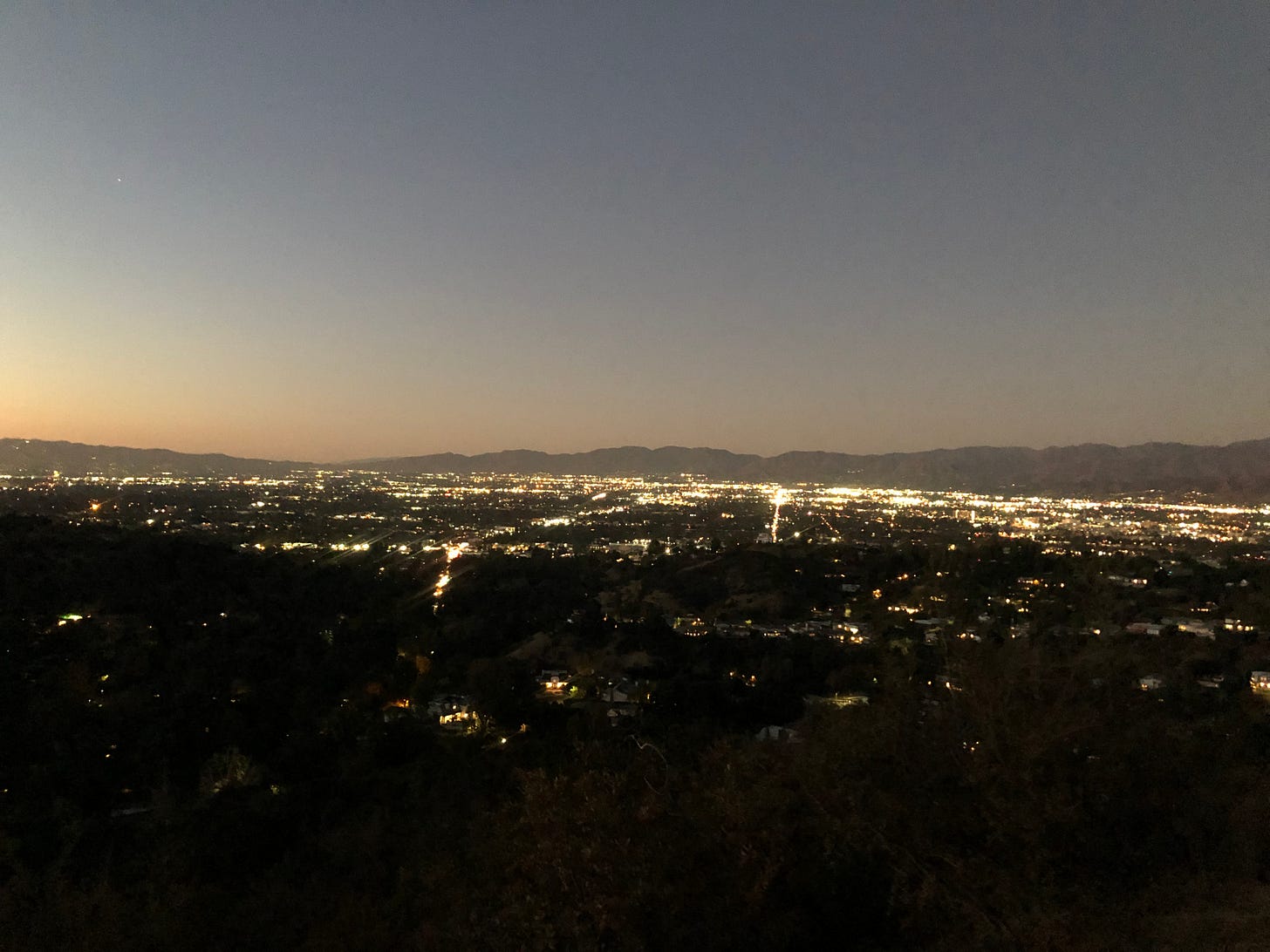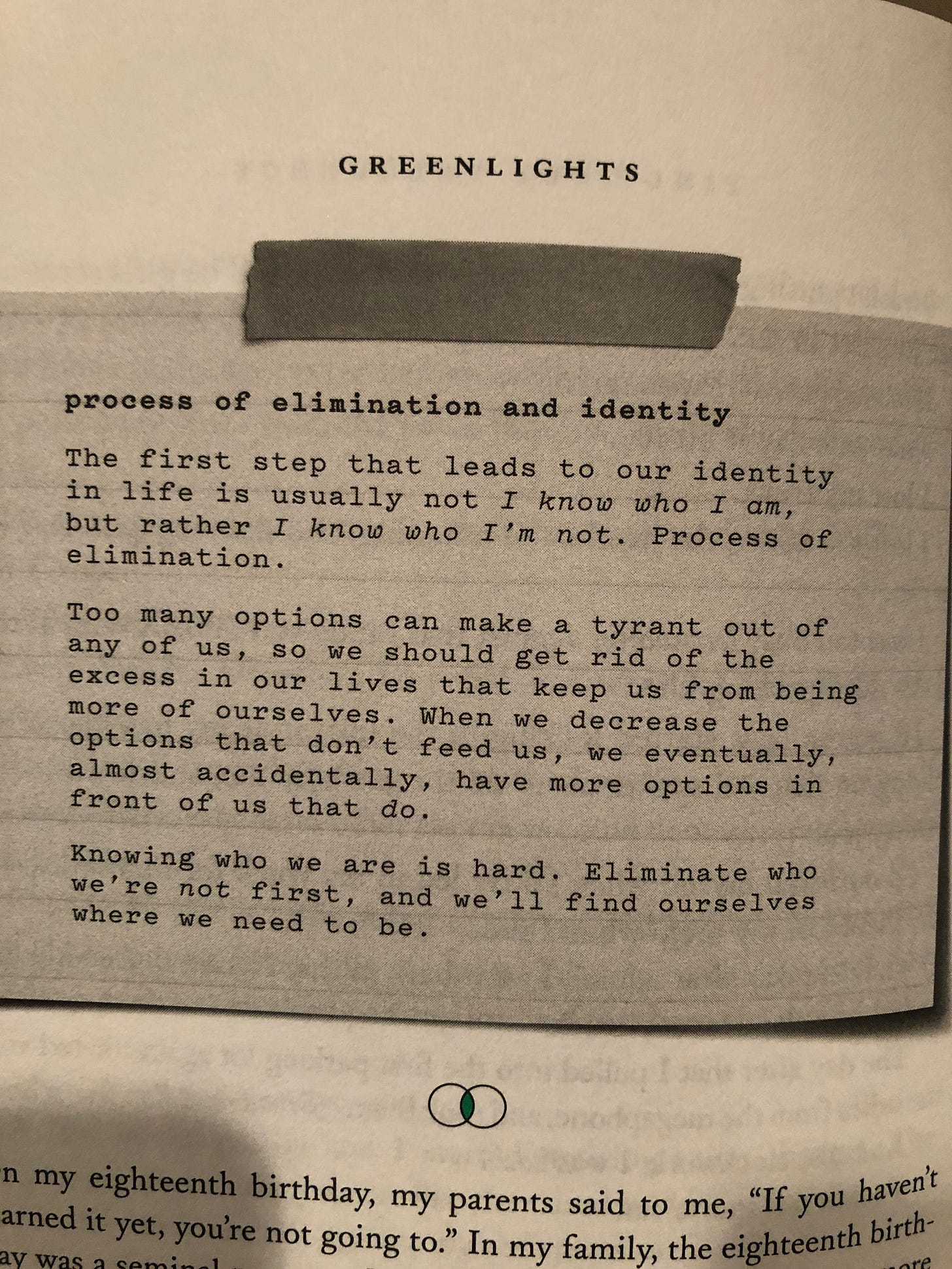Hey, it’s great to have you.
I’ve been spending my time over the holidays getting organized, and while there’s always something to do, I’ve come as far as I can in cutting down - a process bringing clarity amidst balancing a ton of things.
This pretty much summarizes 2020, where I tried a bunch of things, which helped me decide what to focus on for 2021 (read this issue’s essay for more).
Similarly, this also applies to my writing. I trimmed the essays on my site so that it now only shows the most important articles. I’ll also only be sharing writing where I truly feel I have something to say and the audience benefits.
Here’s to more clarity for all of us this year! (Also, see you on Monday evenings - changing up the release schedule from Sundays).
(Photo: sunset in LA captured on scenic Mulholland Drive)
In This Letter:
This is an issue of Leo’s Letter, where we share actionable ideas on content, commerce, and culture.
Essay - Looking for Directions
The above lines come from Matthew McConaughey’s recently published memoir, Greenlights.
Now, you might be wondering why I, as someone who reads biographies of founders such as Elon Musk, Satya Nadella, and most recently Tony Hsieh, am reading one about an actor who I barely have any knowledge of – I’m more of someone who follows the startup space versus the lives of Hollywood celebrities. Niche developments over mass media.
I was wondering the same, but, after receiving the book as a surprise on top of being wined and dined (remotely) by a company courting us as a potential client, I thought I might as well read it. Plus, it gave me something to do while quarantining after traveling.
A quarter of the way through, I’ve enjoyed the read and learned the lesson above: sometimes you have to go by the process of elimination.
Seeing what it’s like
It was only through trying that I realized I didn’t enjoy taking content creation seriously, pursuing financial independence, nor becoming a digital nomad (take these with a grain of salt since each scenario has different sets of conditions, and mine are only one interpretation).
Starting with content, the process falls into three stages: content creation, production, and distribution. For podcasting, it’s recording the episodes, editing, and then sharing on social media and other channels – I didn’t enjoy the last part due to social media’s needs to engage with other creators, which is fine, but in scrolling through newsfeeds (especially Instagram and LinkedIn), I couldn’t help but make self-comparisons with what I’m seeing. I’d rather not do that, and I’m glad I don’t have to.
My attempt at ecommerce didn’t work out for what may be two reasons: 1) lack of motivation for the end goal, and 2) lack of perseverance due to distractions.
Since things didn’t go as I planned in September, I decided to use the remaining months of the year to work on ecommerce – wouldn’t it be great to end the year with a new stream of income? Turns out, this wasn’t so important to me and though I enjoyed some parts of the process, namely experimenting with Facebook ads and copywriting, that wasn’t enough to keep me going. When I started thinking about other things to work on, I got distracted and stopped.
To sum up my thoughts around travel based on my recent month-long trip to Los Angeles, I believe that it’s hard to balance travel with an intense workload, difficult to focus on your new destination when you are thinking about other things in your head, and risky to expect to encounter new experiences without seeking them yourself – things don’t magically appear.
The Stanford Marshmallow Prison Experiment
Quite THE read and an alternative way to look at the Stanford Marshmallow Experiment, most commonly referred to as a study on delayed gratification (will the child eat the marshmallow immediately, or wait 15 minutes to receive another one?)
Here's a thought-provoking question: "Q: Could waiting be a sign of wanting to please an adult and not a proxy for innate willpower? Presumably, even little kids can glean what the researchers want from them."
The author then ties this into the current systems around education, medicine, and academia - a read for those who are on the fast track and don't know what's next (for finance folks, it's 2 years in investment banking, 2 years in private equity, 2 years at a top MBA, and then a big fat question mark).
How Discord (somewhat accidentally) invented the future of the internet
"Everybody talks about the notion of the Third Place, but nobody's come closer to replicating it online than Discord."
Discord's combination of text, voice, and video chat make it the place for people to hang out, especially in a remote world.
Lots to look into here - I'm not sure how different Discord is from Slack, and communities often flourish without the need for real-time interactions, such as with Facebook groups. And then there's the audio rooms, starting with Clubhouse and then Facebook rooms and Twitter Spaces (speaking of Clubhouse, I just got on recently - come find me @lensofleo and send me where to go on there).
The Mom Test by Rob Fitzpatrick
A summary of the book “The Mom Test”, on customer research.
People may have all the right intentions in their responses to your questions, but they might not be truthful, nor spurred to action.
Thus, you have to ask the right questions and set the right structure for the meetings, so that you can 1) find information that actually shapes product development, and 2) identify clear next steps post-conversation - will they want to dive deeper, bring in more people, or make a purchase?
A few examples of effective questions:
From: would you buy this product; To: what are the problems you are currently experiencing?
From: how much would you pay for X; To: what else have you tried?
From: feedback (I love this product); To: action items “when can you come back to talk to the rest of the team?
Until Next Time
Thanks for reading! Have any thoughts to share? Comment on the post!
Find me at leolu.info or on Twitter.
Bring a friend along for the ride:




